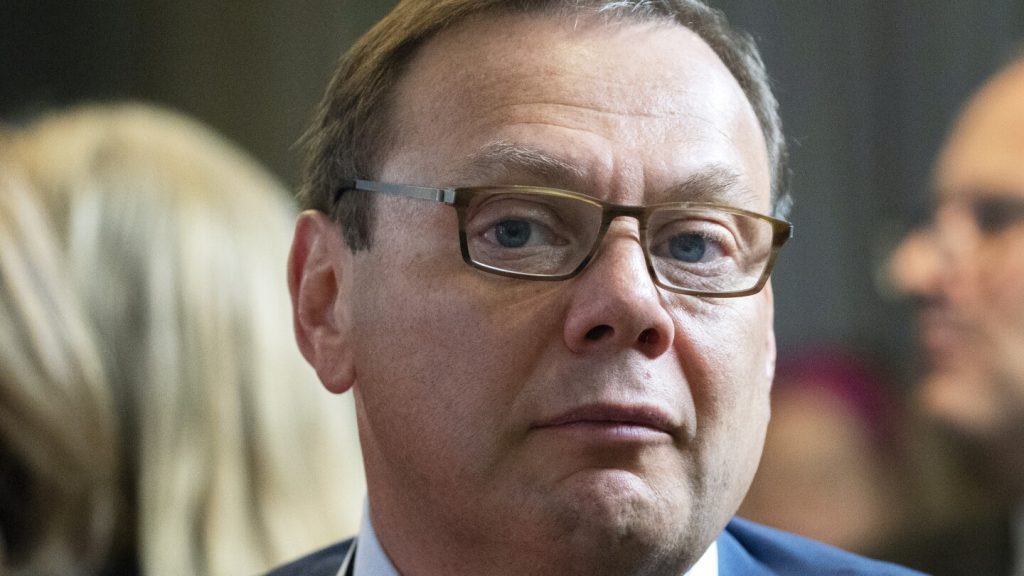The EU General Court ruled in favor of Russian businessmen Mikhail Fridman and Petr Aven, overturning the European Union’s decision to sanction the pair for their alleged role in Russia’s war against Ukraine. The court cited a lack of evidence to justify their inclusion on the list of persons subjected to restrictive measures between February 2022 and March 2023. Fridman, a founder of Alfa Group and one of Russia’s wealthiest tycoons, was previously sanctioned by the EU in March 2022, leading him to resign from the board of Alfa Bank. Aven, who headed Alfa Bank until March 2022, also left the board after sanctions were imposed.
The EU has implemented multiple rounds of sanctions on Russia following President Putin’s decision to send troops into Ukraine. These measures have targeted various sectors, including energy, banking, and diamond mining, as well as imposing asset freezes and travel bans on Russian officials, including Putin himself. Aven and Fridman, who hold Russian, Latvian, and Israeli nationalities, were added to the list of individuals subject to restrictive measures after Russia invaded Ukraine in February 2022. Following their challenge to this decision, the General Court ruled that their inclusion was unjustified due to insufficient evidence of their involvement in providing support to Russian decision-makers or war efforts against Ukraine.
Both Fridman and Aven have expressed their opposition to the war in Ukraine, with Fridman calling it a tragedy and urging an end to the bloodshed. While he had been living in Britain, Fridman reportedly returned to Moscow after the conflict between Israel and Hamas escalated. In addition to the EU sanctions, the U.S. Treasury Department imposed financial sanctions on four Russians on the board of Alfa Group, including Aven and Fridman. Parties dissatisfied with rulings by the General Court have the option to appeal to the European Court of Justice for further review.
The court’s decision to overturn the sanctions against Fridman and Aven highlights the importance of providing sufficient evidence to justify restrictive measures against individuals implicated in conflicts or other violations. The ruling acknowledges the need for concrete proof of involvement in activities that warrant such punitive actions, emphasizing the principle of due process and the presumption of innocence until proven guilty. As tensions between Russia and Ukraine continue to escalate, the legal battles over sanctions imposed by the EU and other bodies serve as a crucial aspect of the broader geopolitical landscape and efforts to hold individuals and entities accountable for their actions.
The case of Fridman and Aven reflects the complex web of relationships and responsibilities that influential business figures may find themselves entangled in during times of conflict and international pressure. As prominent figures in the Russian business community, their involvement in the operations of Alfa Bank and other enterprises has placed them under scrutiny from both domestic and international authorities seeking to curb Russian aggression in Ukraine. The legal victory achieved by Fridman and Aven underscores their defense against allegations of complicity in activities that violate international norms and human rights standards, signaling a potential shift in the legal terrain for individuals targeted by sanctions in the context of global conflicts.
Moving forward, the implications of the court’s ruling on Fridman and Aven could reverberate across the European Union and beyond, shaping the criteria and evidence required for imposing sanctions on individuals connected to conflicts and human rights abuses. As the legal proceedings continue and potential appeals are considered, the case serves as a focal point for discussions on the effectiveness of sanctions as a tool for deterring and punishing illicit activities, as well as the standards of proof needed to justify such measures. The outcome of this case may set a precedent for future decisions on sanctioning individuals in similar circumstances, influencing the approach taken by policymakers and legal authorities in addressing ongoing crises and conflicts around the world.


